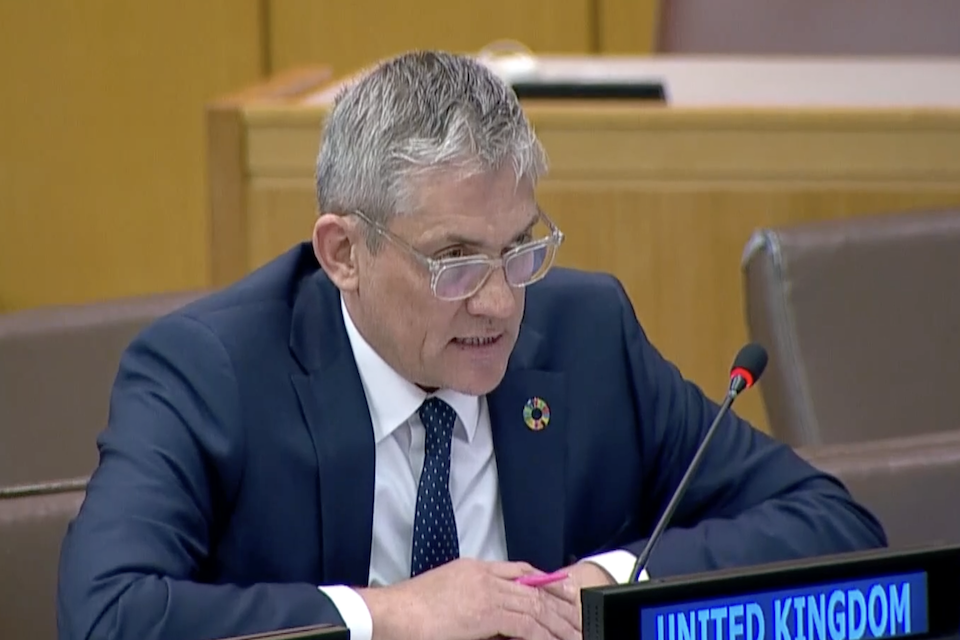We want to see a world in which girls have access to education that enables them to protect their health, well-being and dignity: UK at the UN
Statement by UK ECOSOC Ambassador Tom Woodroffe at the UN General Assembly plenary session on the UN Commission on Population and Development (CPD)

Thank you very much, Chair, Excellencies, colleagues – good afternoon.
Please note that the UK aligns with the statement delivered by Argentina on behalf of a group of cross-regional Member States.
Let me start by thanking you, Chair, your team, and the other Members of Bureau for your efforts to date. This Commission offers an invaluable opportunity to reaffirm our collective commitment to the ICPD Programme of Action, to recognise the important role that UNFPA plays in its implementation, and most importantly to increase our ambition to deliver on the Nairobi Summit commitments. All of that is crucial if we are to achieve the SDGs.
The UK welcomes the Commission’s focus this year on ‘Population, Education and Sustainable Development’. It comes at a key moment, as we build on the outcomes of the Secretary-General’s Transforming Education Summit and as we look ahead to the SDG Summit later this year.
Education, as others have said this morning, is a human right, a gateway to other rights, key to sustainable development, and one of the most effective and lasting investments that governments can make. But too many girls today continue to be denied this right.
We know that girls, in particular, face interlinked barriers to accessing and remaining in education - including adolescent pregnancy and parenthood. Indeed, in 2022, an estimated 50% of adolescent pregnancies in low- and middle-income countries were unintended, caused by a number of factors including early and forced child marriage, sexual abuse, and lack of access to contraceptives. That is a shocking statistic that should concern us all.
The UK is committed to working to address this – education, health and reproductive rights are at the heart of our new International Women and Girls Strategy. We want to see a world in which all adolescents and young people, in particular girls, have access to education that enables them to stay in school and protect their health, well-being, and their dignity.
But, in our view, the transformative impact of education can only be fully realised when adolescents and young people are empowered with the knowledge, attitudes, skills, and values to make appropriate and healthy choices in their sexual lives, including contraception, childbirth and responsible sexual behaviour. The evidence is clear: comprehensive sexuality education helps reduce unintended pregnancies, enhances gender-equitable norms, and decreases incidences of HIV and other sexually transmitted infections. Quite simply, it saves lives.
This fact should not be for debate.
Colleagues, we are one year away from the 30th Anniversary of the International Conference on Population and Development, a key moment for the international community to assess progress made since Cairo. And whilst the general global trend has been positive, we have, in recent years, seen backsliding on many of the gains we have made collectively over the last three decades - limiting women and girls’ lifesaving access to contraception, to quality education, to safe abortion, and to maternal health services.
As we look ahead to ICPD at 30, the UK will continue to listen to and amplify the voices of women, adolescents, and girls and those most marginalised and to empower them as decision-makers, advocates, and leaders to make informed choices – their choices - over their lives and bodies, free of coercion, discrimination and violence.
Thank you very much.